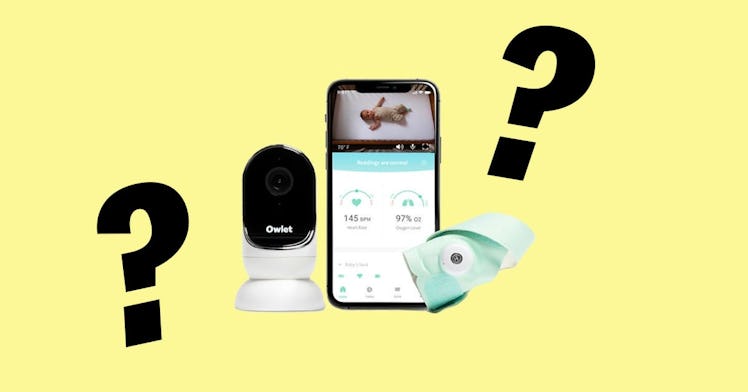What Parents Need to Know About the Owlet Smart Sock FDA Warning
There haven’t been any specific safety concerns, but the company has at least temporarily stopped selling them. Here’s why.

Owlet, a company that makes baby-care tech products, has ceased selling its Smart Sock devices after a warning from the Food and Drug Administration (FDA), reports Deseret News. The socks are designed to measure a baby’s heart rate and blood oxygen level.
In October, the FDA sent a warning letter to Owlet stating that the company was marketing the socks without approval from the agency. Since the socks can notify parents about potentially out-of-the-ordinary measurements of heart rate and blood oxygen, the agency said that they should be classified as medical devices.
In a response letter, the company said they would stop selling the products in the United States. Owlet also noted that the FDA didn’t mention any specific safety concerns about the sock. For existing customers, they added the socks’ “functionality has not changed.”
But for parents, the regulatory details of the Owlet sock may be beside the point. In 2019, Fatherly spoke with a number of experts (among them researcher Emily Oster of Brown University) about so-called “baby trackers.” The bottom line: “The world of baby trackers — flashy, high-tech and promising as it seems — is the Wild West when it comes to data about your baby that could improve their health or well-being. They may, however, give anxious parents something to do while they worry.” In other words, while they are certainly not dangerous, they may not be the silver bullet to your anxiety while your baby is sleeping — in fact, they’re likely to do just the opposite.
FURTHER READING: The Big Problem With Baby Trackers
While the socks are no longer available on Owlet’s website, as of publication they do seem to be available at other online retailers like Amazon and Bed Bath & Beyond. The company also stated in its response letter that they “plan to work toward the submission of a device application to FDA.”
The FDA has the authority to oversee medical devices and their marketing in the United States. This regulatory oversight is important, as it ensures that companies have to run their medical products past an independent board of reviewers who determine whether or not the product can actually do what the companies claim it can.
In addition, Deseret News and The Verge both point out that the Journal of the American Medical Association (JAMA) published an editorial in 2017 expressing skepticism at body monitors designed for infants. While the authors write that these devices “have potential to improve care,” they add that “their performance characteristics are unknown to the public and there are no medical indications for their use.”
In response to a request for comment, Owlet Baby Care sent Fatherly a statement mentioning again that they plan to apply for authorization with the FDA for the heart rate and oxygen monitoring features and that they will “continue to support” their “current customers.” They did not respond to a question about the product being sold at other retailers, or to the opinions expressed by the JAMA editorial. A representative of the company did respond to the editorial at The Verge in 2017, however, stating that the company was “actively addressing and resolving” concerns regarding “the present lack of evidence behind certain products” as expressed in the paper.